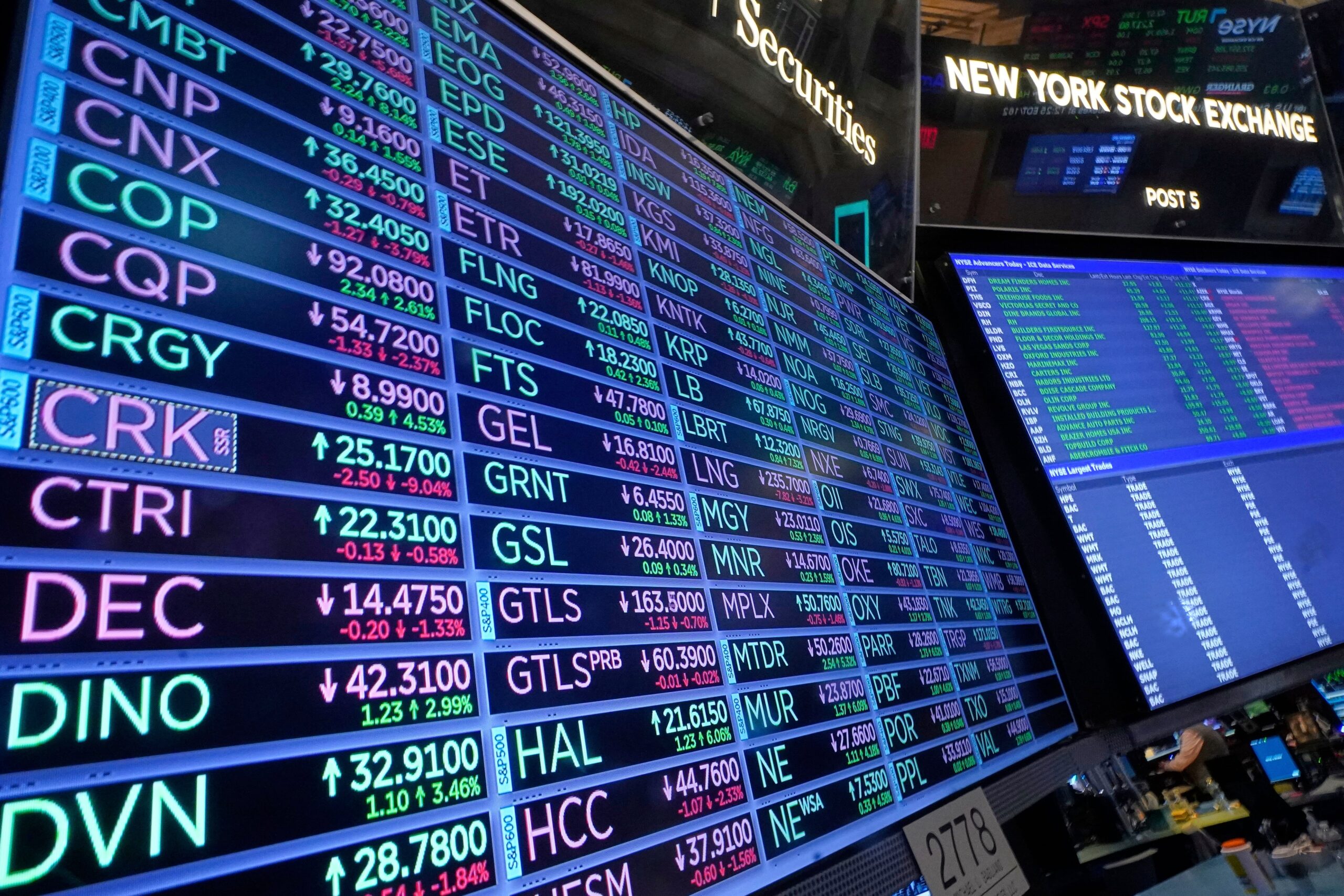Business
European Stocks Dip as Investors Gauge Market Volatility

European stocks opened lower on Thursday as banking shares dragged down the market. This decline reflects investor concerns about a potential market correction following a surge in Asian stocks, driven by enthusiasm for artificial intelligence. Wall Street had recently reached new record highs, supported by gains in technology stocks, despite the ongoing U.S. government shutdown that has hindered the release of key economic data.
The STOXX 600 index fell by 0.3 percent shortly after markets opened at 0903 GMT. London’s FTSE 100 also decreased by 0.3 percent, primarily impacted by losses at HSBC and Lloyds Banking Group. However, these losses were partially offset by gains in mining and technology sectors. The MSCI World Equity Index remained flat for the day.
Commenting on the current market sentiment, Fiona Cincotta, senior market analyst at City Index, remarked, “It just feels like the mood is a little bit fragile. We’re lacking substance to any move that we’re seeing, because we’re not getting that data out of the U.S.” This uncertainty has heightened caution among investors.
Adding to this cautious atmosphere, Jamie Dimon, CEO of JPMorgan Chase, warned of an increased risk of a significant correction in the U.S. stock market within the next six months to two years. He cited factors such as geopolitical tensions, government spending, and global remilitarization as potential triggers.
On the geopolitical front, U.S. President Donald Trump announced late on Wednesday that Israel and Hamas had reached a ceasefire and hostage agreement, which may further influence market dynamics.
In France, President Emmanuel Macron indicated that he would appoint a new prime minister by the end of the week, alleviating fears of a snap election and providing optimism for budget negotiations. Following this development, French government bonds held on to gains from Wednesday, with the 10-year yield at 3.5082 percent. The benchmark German 10-year yield was reported at 2.692 percent.
The dollar index saw slight gains, rising 0.1 percent to 99.971, although it remains down about 8.9 percent year-to-date. The euro continued to decline, marking its fourth consecutive day of losses, down 0.1 percent to $1.1615. Meanwhile, the Japanese yen hit an eight-month low at 153 per dollar before slightly recovering to 152.76. Economists advising Japan’s likely new premier, Sanae Takaichi, suggested that the yen’s weakness could benefit the economy.
Oil prices remained steady as traders awaited confirmation of the ceasefire and hostage deal’s durability. Gold prices hovered around $4,041.29, maintaining its position above the $4,000 mark for the first time, driven by safe-haven demand amid a weaker dollar.
In a related forecast, Kristalina Georgieva, Managing Director of the International Monetary Fund, projected a slight slowdown in global growth for 2025 and 2026. She cautioned investors against complacency, although she acknowledged that the global economy has shown more resilience than anticipated.
Additionally, China has tightened its export controls on rare earth technology, expanding restrictions initially set in April. This move is likely to have far-reaching implications for global supply chains.
As the day progresses, market participants will be closely monitoring developments in both geopolitical and economic spheres to gauge their potential impact on stock performance and investor sentiment.
-

 Politics4 weeks ago
Politics4 weeks agoSecwepemc First Nation Seeks Aboriginal Title Over Kamloops Area
-

 World5 months ago
World5 months agoScientists Unearth Ancient Antarctic Ice to Unlock Climate Secrets
-

 Entertainment5 months ago
Entertainment5 months agoTrump and McCormick to Announce $70 Billion Energy Investments
-

 Science5 months ago
Science5 months agoFour Astronauts Return to Earth After International Space Station Mission
-

 Lifestyle5 months ago
Lifestyle5 months agoTransLink Launches Food Truck Program to Boost Revenue in Vancouver
-

 Technology3 months ago
Technology3 months agoApple Notes Enhances Functionality with Markdown Support in macOS 26
-

 Lifestyle3 months ago
Lifestyle3 months agoManitoba’s Burger Champion Shines Again Amid Dining Innovations
-

 Top Stories2 months ago
Top Stories2 months agoUrgent Update: Fatal Crash on Highway 99 Claims Life of Pitt Meadows Man
-

 Politics4 months ago
Politics4 months agoUkrainian Tennis Star Elina Svitolina Faces Death Threats Online
-

 Sports5 months ago
Sports5 months agoSearch Underway for Missing Hunter Amid Hokkaido Bear Emergency
-

 Politics5 months ago
Politics5 months agoCarney Engages First Nations Leaders at Development Law Summit
-

 Technology5 months ago
Technology5 months agoFrosthaven Launches Early Access on July 31, 2025





















